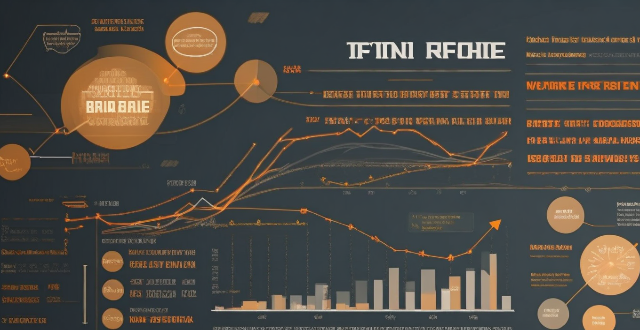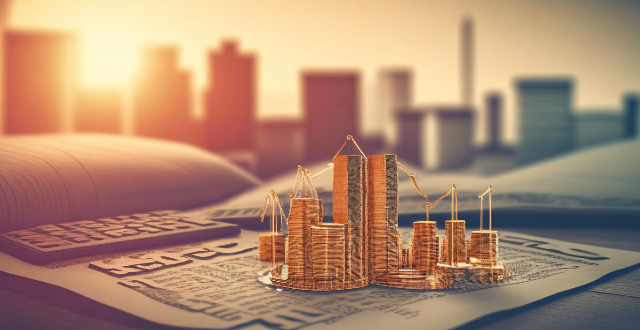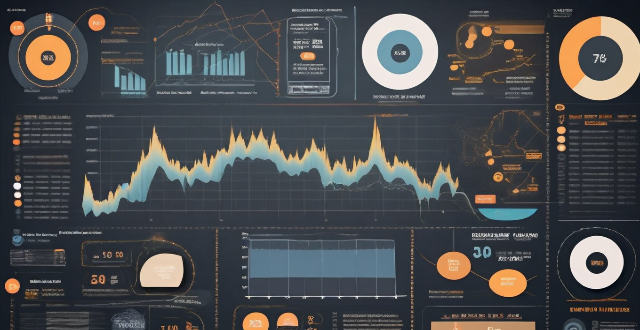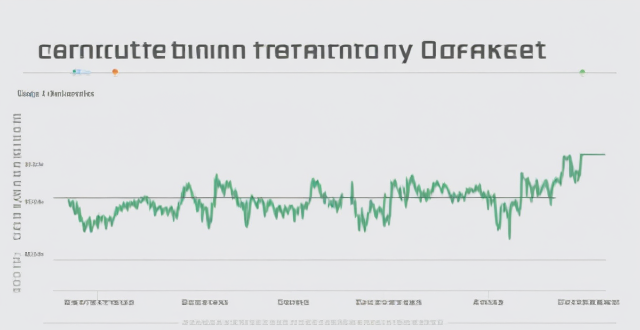Market Inflation

How does inflation impact bond investments ?
Inflation significantly impacts bond investments by decreasing purchasing power, increasing interest rate risk, creating opportunity costs, and affecting fixed-income investors. Inflation-indexed bonds can mitigate these effects.

What are the risks involved in investing in the stock market ?
The stock market offers lucrative opportunities for investors but also comes with its own set of risks. These include: - Market Risk, which affects the entire market and cannot be diversified away; - Liquidity Risk, where you may not be able to sell your shares quickly enough; - Interest Rate Risk, affecting bond investors and stock prices; - Business Risk, related to a company's performance declining due to factors such as poor management or increased competition; - Inflation Risk, where inflation erodes the purchasing power of your investments; - Political Risk, impacting your investments due to political events; - Currency Risk, affecting those who invest in foreign markets.

How can I protect my retirement savings from inflation ?
Inflation can significantly erode the value of retirement savings over time. To protect your nest egg, consider diversifying your portfolio with stocks, real estate, and commodities. Investing in inflation-protected securities (TIPS) and fixed index annuities can also help maintain purchasing power. Global diversification, particularly in emerging markets, offers growth opportunities and hedges against local economic conditions. Maintaining a cash reserve for liquidity and short-term needs is crucial, as is regularly rebalancing your portfolio to stay on track with your goals. Delaying Social Security benefits can lead to higher monthly payments, acting as longevity insurance. Increasing contributions, especially if matched by employers, and working with a financial advisor for personalized guidance are other effective strategies. By employing these tactics, you can safeguard your retirement savings from inflation and ensure a comfortable retirement.

Which economic indicators are most important for predicting inflation ?
Inflation is a critical economic factor that affects the overall health of an economy. It is defined as the rate at which the general level of prices for goods and services is rising, leading to a decline in purchasing power. Predicting inflation is crucial for policymakers, investors, and businesses alike. To predict inflation accurately, several economic indicators are closely monitored. Here are some of the most important ones: 1. Consumer Price Index (CPI) 2. Producer Price Index (PPI) 3. Money Supply 4. Interest Rates 5. Unemployment Rate 6. Gross Domestic Product (GDP) 7. Exchange Rates 8. Oil Prices 9. Housing Prices 10. Wage Growth

What is the role of macroeconomic indicators in stock market analysis ?
The article discusses the importance of macroeconomic indicators in stock market analysis, highlighting key indicators such as economic growth, inflation, interest rates, employment, and government policies. It suggests monitoring these indicators to identify trends and patterns that can impact the stock market, integrating this analysis with other tools for a comprehensive view.

How do economic indicators affect stock market performance ?
Economic indicators significantly impact stock market performance by reflecting the health of an economy. Key indicators include GDP, inflation rate, unemployment rate, interest rates, trade balance, consumer confidence index, and manufacturing index. Each of these measures provides insights into different aspects of economic activity, influencing investor sentiment and decision-making processes. By understanding how these indicators affect the stock market, investors can make informed decisions to maximize returns while minimizing risks.

How can governments stimulate economic recovery without increasing inflation ?
Governments can stimulate economic recovery without increasing inflation by implementing a combination of fiscal policy measures, monetary policy tools, supply-side policies, and structural reforms. Fiscal policy measures include tax incentives for businesses and consumers, as well as targeted spending on infrastructure and education. Monetary policy tools involve adjusting interest rates and reducing reserve requirements to encourage borrowing and lending. Supply-side policies focus on deregulation and labor market flexibility to reduce costs and promote competition. Structural reforms aim to support education, innovation, and environmental sustainability. It is important for governments to monitor the effects of these policies and adjust them as needed to maintain price stability and economic health.

How has the COVID-19 pandemic impacted the stock market, and what insights can be gained from this analysis ?
The COVID-19 pandemic has caused increased volatility and uncertainty in the stock market. Certain industries, such as travel and hospitality, have been negatively impacted while others, like healthcare and technology, have experienced growth. Government interventions aimed at mitigating economic effects have both stabilized markets and created long-term concerns. The rise of remote work and digital transformation has benefitted companies able to adapt quickly. As economies begin to recover with widespread vaccination, investors should monitor developments closely to make informed decisions.

How can I protect my growing wealth from market fluctuations ?
Market fluctuations are a natural part of any investment journey. However, as your wealth grows, it becomes increasingly important to implement strategies that can help protect your assets from the ups and downs of the market. Here's how you can do it: - Diversify Your Portfolio - Use Hedging Strategies - Stay Updated on Economic Indicators - Regularly Review and Rebalance Your Portfolio - Work with Financial Advisors

How does gold investment work ?
Gold investment is a popular way to diversify your portfolio and hedge against inflation, offering various forms such as physical gold, ETFs, mutual funds, mining company stocks, futures, and options. It provides benefits like hedging against inflation, portfolio diversification, and acting as a safe haven during crises but also involves risks including price volatility and storage costs. To start investing in gold, one should educate themselves, determine their investment goals, choose the right type of investment, allocate a budget, research vendors/brokers, and monitor their investment.

What are the key factors to consider when analyzing the stock market ?
Analyzing the stock market involves considering economic indicators, company financials, industry trends, market sentiment, technical analysis, and risk management. Economic indicators provide insights into the overall health of the economy, while company financials assess the financial health of individual companies. Industry trends help understand the prospects of the industry in which a company operates. Market sentiment can impact stock prices, even if it doesn't necessarily reflect the underlying fundamentals of a company or the economy. Technical analysis involves studying past price patterns to predict future movements. Proper risk management is crucial when investing in the stock market, including diversification, stop-loss orders, position sizing, and evaluating the potential rewards against the risks involved in each trade.

How do you analyze the performance of a specific industry within the stock market ?
Analyzing the performance of a specific industry within the stock market requires a comprehensive understanding of various factors that can impact the industry's growth and profitability. Key steps to follow include identifying the industry, studying its trends, analyzing the financial performance of key players, evaluating the competitive landscape, considering macroeconomic factors, using financial ratios and metrics, and considering industry-specific factors. By following these steps, you can gain a better understanding of the performance of a specific industry within the stock market and make informed investment decisions based on your analysis.

How do you use historical data to make predictions about future stock market performance ?
Predicting the stock market's future performance is a complex task that involves analyzing various factors. One common method used by investors and analysts is to study historical data, which can help make informed predictions about future market performance. To use historical data for stock market predictions, it is essential to identify key metrics such as price movements, volume, earnings reports, and economic indicators. Once these metrics are identified, analyze the historical data to identify trends and patterns through technical analysis techniques like moving averages, support and resistance levels, and candlestick patterns. Additionally, consider using fundamental analysis to evaluate underlying factors that drive stock prices, such as financial statements, industry trends, and macroeconomic factors. With the advancement of technology, machine learning and AI models have become popular tools for predicting stock market performance, including neural networks, reinforcement learning, and deep learning. Combining different methods of analysis can lead to more accurate predictions about future stock market performance. However, it's important to remember that no method is foolproof, and there will always be an element of risk involved in investing in the stock market.

What are the key indicators of economic recovery ?
Economic recovery is a complex process that involves several key indicators. These indicators are used to gauge the health and growth of an economy after a period of decline or recession. Some of the most important indicators of economic recovery include GDP growth, employment rates, consumer spending, business investment, the housing market, inflation rates, trade balance, and stock market performance. Each of these indicators provides valuable insights into the overall health and growth of an economy.

Are there any potential negative consequences of rapid economic recovery ?
The text discusses the potential negative consequences of rapid economic recovery, which include inflation and price distortions, unemployment and labor market disruptions, environmental impact, financial instability and bubbles, and income inequality. It emphasizes the importance of considering these consequences and taking steps to mitigate them through sustainable growth policies, addressing labor market disruptions, protecting the environment, ensuring financial stability, and reducing income inequality.

What is the relationship between interest rates and economic indicators ?
The text discusses the impact of interest rates on economic indicators such as inflation, unemployment, and GDP. It explains how higher interest rates reduce inflation and slow down economic growth by decreasing consumer spending and business investments, while lower interest rates stimulate borrowing, consumption, and investment, leading to increased inflation and economic growth. The article emphasizes the crucial role of interest rates in managing the economy effectively.

What is the current state of the US stock market ?
The US stock market is currently experiencing a mix of positive and negative trends, including strong economic growth and technology sector performance, but also significant market volatility and trade tensions. Factors impacting the market include interest rates, global economic conditions, and geopolitical risks.

What are the best practices for pricing items in a second-hand market ?
When selling items in a second-hand market, it's essential to follow best practices for pricing to maximize profits and ensure a smooth transaction. Key tips include researching market value, considering the item's condition, setting a fair price, being open to negotiations, and updating the listing regularly. By following these guidelines, sellers can attract more potential buyers and increase their chances of making a successful sale.

What are the challenges and opportunities for developing countries in the carbon trading market ?
Challenges and opportunities for developing countries in the carbon trading market include lack of infrastructure, legal and regulatory hurdles, market access and information asymmetry, capacity building needs, economic growth and investment, technology transfer and innovation, environmental sustainability, policy influence and leadership.

How do interest rates affect bond prices and yields ?
Bond prices and yields are inversely related to interest rates. When interest rates rise, bond prices fall, and vice versa. This is because the yield on a bond is determined by its coupon rate, which is fixed at the time of issuance. Therefore, if interest rates increase after the bond is issued, the yield on the bond will be lower than the current market rate, making it less attractive to investors. Conversely, if interest rates decrease after the bond is issued, the yield on the bond will be higher than the current market rate, making it more attractive to investors. Other factors that affect bond prices and yields include credit risk, inflation expectations, and economic growth. When interest rates rise, bond prices fall, and the yield curve steepens. When interest rates decrease, bond prices rise, and the yield curve flattens. To manage interest rate risk, investors can diversify their portfolio across different types of bonds and maturities, use hedging strategies such as interest rate swaps and futures and options contracts, and engage in active management through market timing and credit analysis.

How has social distancing impacted the economy and job market ?
Social distancing measures have had a significant impact on the economy and job market, including decreased consumer spending, supply chain disruptions, high unemployment rates, increased demand for remote work, and changes in job seeking behavior.

How do political events affect the stock market, and how can they be analyzed ?
This comprehensive analysis explores the impact of political events on the stock market, including economic policies, regulatory changes, international relations, and elections. It also provides strategies for analyzing their potential effects, such as staying informed, diversifying your portfolio, using technical and fundamental analysis, and monitoring sentiment indicators.

How do I know if gold investment is right for me ?
Investing in gold can be a great way to diversify your portfolio and protect yourself from market volatility. However, it's important to consider whether this type of investment is right for you. Here are some factors to consider: Risk Tolerance: Gold is generally considered a safe haven asset, meaning that it tends to hold its value during times of economic uncertainty. However, like any investment, there is always some degree of risk involved. You should only invest in gold if you are comfortable with the potential risks and volatility of the market. Investment Goals: Are you looking to grow your wealth over time, or are you more interested in preserving your current assets? Gold has historically been a good store of value, but it may not provide the same growth potential as other investments. Consider your long-term goals and whether gold aligns with them. Market Conditions: The performance of gold can vary depending on market conditions. For example, during times of inflation or economic turmoil, gold may perform well as investors seek out safe haven assets. Keep an eye on market trends and conditions before making any decisions about investing in gold. Costs and Fees: Investing in gold can come with various costs and fees, including storage fees, insurance costs, and transaction fees. Make sure you understand all of these costs before investing. Additionally, consider the impact of taxes on your gold investments. Liquidity: While gold is generally considered a liquid asset (meaning it can be easily bought and sold), there may be times when it is difficult to find buyers or sellers at desirable prices. This could affect your ability to access your funds quickly if needed. Consider how much liquidity you need in your portfolio before investing in gold.

How can I invest in the carbon trading market ?
The carbon trading market offers a lucrative investment opportunity for those interested in environmental sustainability and financial gain. To invest successfully, one should understand the basics of carbon trading, research different carbon markets, choose a broker or exchange, determine an investment strategy, and start trading while managing risk.

What is the carbon trading market ?
The carbon trading market is a financial mechanism that allows for the trading of emissions reductions to meet greenhouse gas emission targets. It is based on cap-and-trade, where a limit is set on total emissions and those who reduce their emissions below the cap can sell their surplus allowances. Key components include carbon credits, emissions caps, trading mechanisms, verification and certification, and regulation and governance. Benefits include cost-effectiveness, flexibility, innovation incentives, and global collaboration. Challenges and criticisms include equity concerns, market inefficiencies, environmental integrity, and political will. The carbon trading market serves as a crucial tool in the fight against climate change but requires ongoing attention and improvement to maximize its effectiveness.

What is the role of a broker in the stock market ?
Brokers play a key role in the stock market, acting as intermediaries between investors and financial markets. They facilitate trades, provide market information, offer investment advice, manage accounts, and execute complex trades. Their expertise helps investors make informed decisions and manage their portfolios effectively.

What role does natural gas play in the global energy market ?
Natural gas is a key player in the global energy market due to its environmental advantages, economic benefits, contributions to energy security, technological advancements, and versatile applications across sectors.

What is the difference between a bull and bear market ?
The main difference between a bull and bear market lies in the direction of the market trend and the overall sentiment among investors. Bull markets are characterized by rising stock prices and optimism, while bear markets are characterized by falling stock prices and pessimism.

How might a lunar base influence the global economy and job market ?
The establishment of a lunar base could significantly impact the global economy and job market by increasing investment in space technology, creating new industries, driving innovation, and fostering international collaboration. It could also create numerous job opportunities and expand educational opportunities focused on space-related disciplines.

What is the stock market and how does it work ?
The stock market is a financial ecosystem where investors can buy and sell ownership shares of publicly traded companies. Companies use it to raise capital, while investors aim to share in the company's success. Prices of stocks are determined by supply and demand, influenced by various factors including company performance, market trends, and economic conditions. The market is regulated to protect investors and maintain fairness. Investing in stocks comes with risks but also offers potential rewards, making it a popular choice for long-term investments.